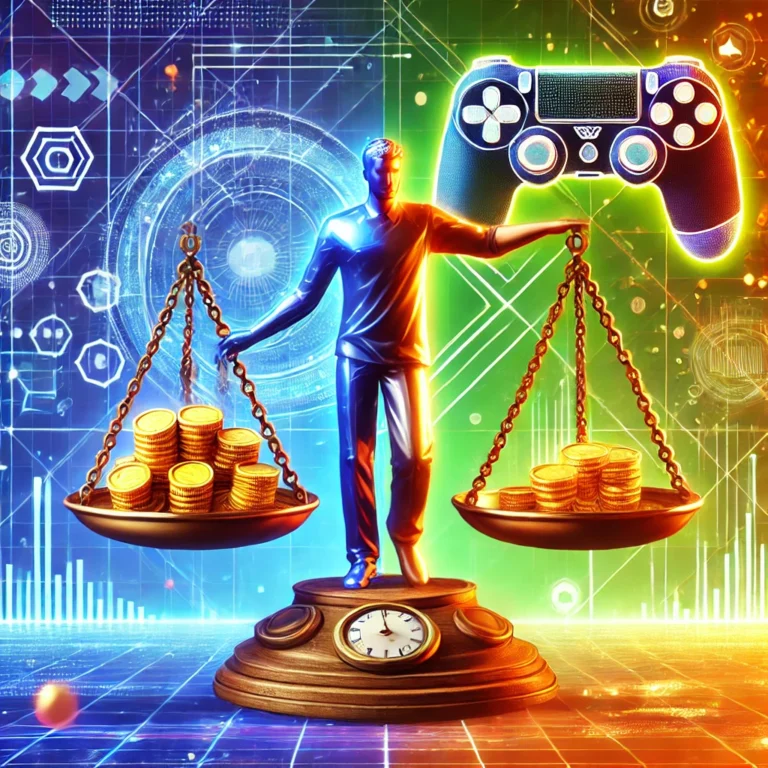Introduction
Game development is both an art and a business. Developers must create compelling experiences that resonate with players while ensuring financial viability. However, the increasing monetization of games—through microtransactions, loot boxes, and paywalls—has raised ethical questions. Where should developers draw the line between profit and player satisfaction?
The Evolution of Game Monetization
The gaming industry has grown exponentially, with revenue models evolving alongside it. Initially, games were sold as complete products. Now, they often rely on live-service models, where ongoing content and features are funded by in-game purchases.
Key revenue strategies include:
- Microtransactions: Small payments for virtual goods or benefits.
- Season Passes and Subscriptions: Recurring payments for access to exclusive content.
- Advertising: Embedding ads within free-to-play games.
While these models generate substantial income, they also introduce challenges to maintaining a positive player experience.
Ethical Dilemmas in Game Development
- Pay-to-Win Models
Players often criticize games that allow those who spend more to gain a competitive edge. While this approach boosts revenue, it can alienate non-paying players, disrupting the fairness of the experience. - Addictive Game Design
Features like loot boxes and time-limited events exploit psychological principles to encourage spending. This raises concerns about manipulation, particularly among younger or vulnerable audiences. - Incomplete Releases
Releasing unfinished games with promises of future updates undermines player trust. While financial pressures often drive this, it leads to dissatisfaction and reputational damage.
Balancing Profit and Player Experience
Developers must strike a balance between profitability and ethical responsibility. This involves:
- Transparent Monetization
Clear communication about what players are purchasing fosters trust. For example, revealing the odds of loot box rewards can help mitigate concerns about exploitation. - Value-Driven Content
Players are more willing to spend when they feel they’re getting genuine value. Cosmetic items, for instance, can be monetized without affecting gameplay fairness. - Community Engagement
Actively involving players in decision-making builds loyalty. Developers can use feedback to refine monetization strategies and ensure they align with player expectations. - Fair Pricing Models
Offering a mix of free and paid content ensures accessibility while still generating revenue. Free-to-play games like Fortnite demonstrate how this model can succeed ethically.
Case Studies: Success and Controversy
- Positive Example: CD Projekt Red
The Witcher 3 gained acclaim for its player-first approach, offering significant post-launch content for free and charging fairly for expansions. - Controversial Example: EA’s Battlefront II
Initially, players were required to spend excessive time or money to unlock characters. The backlash led to changes in the monetization system, illustrating the importance of ethical balance.
The Role of Regulation and Industry Standards
Governments and organizations have started addressing ethical concerns in game development:
- Regulation of Loot Boxes: Countries like Belgium and the Netherlands have classified loot boxes as gambling, prompting developers to adjust practices in those regions.
- Industry Self-Regulation: Groups like the Entertainment Software Association (ESA) advocate for transparency and player protection.
While regulation helps, ethical development ultimately depends on the values of individual companies.
The Future of Ethical Game Development
As technology and player expectations evolve, so must ethical standards. The future could see:
- AI-Driven Personalization
AI could tailor game experiences to individual player preferences, minimizing manipulative tactics while maximizing enjoyment. - Player Governance
Decentralized platforms may empower players to influence game development and monetization policies directly. - Sustainable Monetization
Balancing long-term player satisfaction with financial goals could lead to innovative models that reward both developers and communities.
Closing Thoughts
The ethics of game development lie at the intersection of creativity, commerce, and responsibility. Developers who prioritize transparency, fairness, and player satisfaction not only build trust but also secure long-term success. By striking this balance, the gaming industry can continue to thrive while respecting its players. If you have experiences or insights on gaming in your community, we invite you to share your story with us at write for us gaming!
